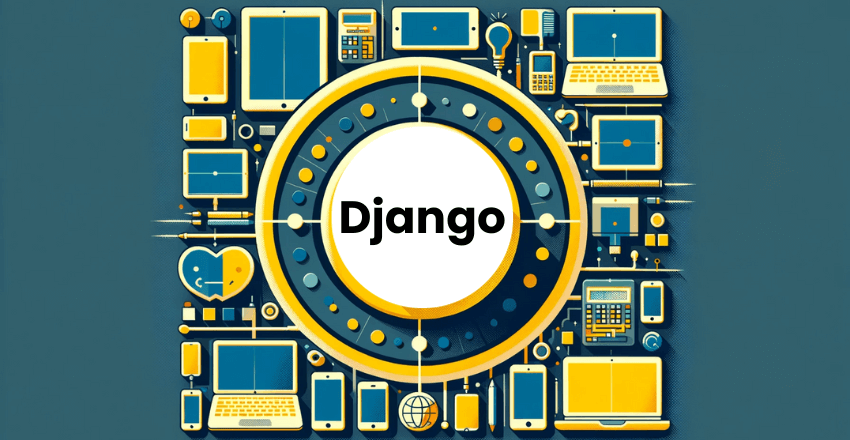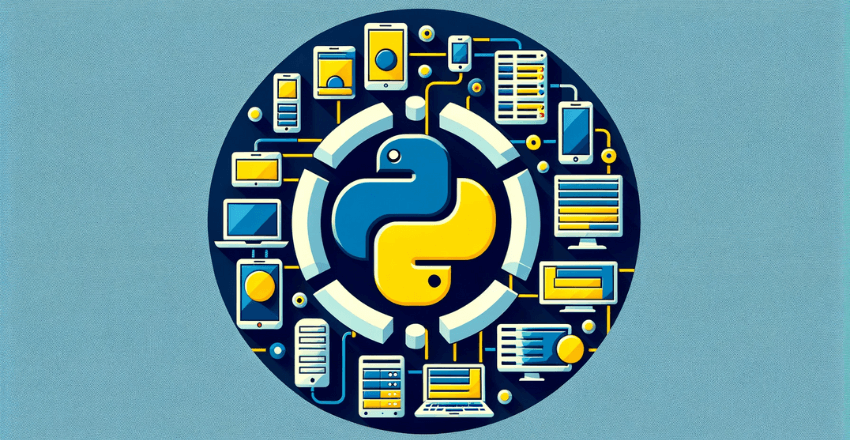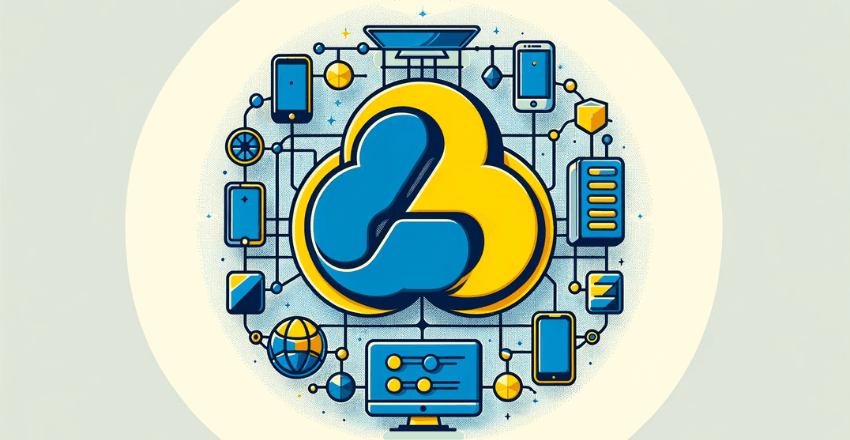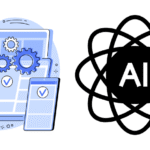 Is Django Cross-Platform? Yes, it offers a flexible solution for creating dynamic web applications that function seamlessly on different operating systems, enhancing development efficiency.
Is Django Cross-Platform? Yes, it offers a flexible solution for creating dynamic web applications that function seamlessly on different operating systems, enhancing development efficiency.
Cross-platform development involves frameworks that allow developers to create applications operable on multiple platforms. Whether on Windows, Mac, or Linux, a cross-platform framework lets developers build applications that run smoothly on any operating system.
The Role of Django in Cross-Platform Development
Django stands out as a cross-platform framework. It’s designed to function on various platforms, including Windows, Mac, and Linux. This makes Django a top choice for developers aiming to create multi-platform applications.
Django’s rich features and functionalities make it an ideal platform for cross-platform application development. Its versatility enables the creation of applications accessible seamlessly across different devices and operating systems.
Key Takeaways
- Django is a cross-platform framework for developing applications that can run on various operating systems.
- Django provides developers with the ability to create versatile and scalable cross-platform solutions.
- Django is compatible with different operating systems, including Windows, Mac, and Linux.
Django’s Cross-Platform Support
Django is a favored choice for cross-platform application development. Its ability to create robust and scalable applications that run smoothly on multiple platforms positions it as a powerful tool.
Achieving Cross-Platform Support with Django
Django achieves cross-platform support through its compatibility with operating systems like Windows, Mac, and Linux. Developers use Django to build applications accessible on various devices, from desktops to mobile phones.
The Versatility of Django for Cross-Platform Projects
A key aspect of Django’s suitability for cross-platform development is its versatility. Django provides a vast array of built-in features, including database management and authentication. These features are customizable and extendable to meet specific project requirements.
Community Support Enhancing Django’s Capabilities
Django’s cross-platform capabilities are bolstered by a vibrant developer community. This community contributes to its ongoing enhancement. With extensive resources and documentation available, developers easily tackle common cross-platform development challenges.
Django’s cross-platform support and capabilities make it a top selection for developing cross-platform applications.
Django’s Compatibility with Different Platforms

As a cross-platform framework, Django can seamlessly run on different operating systems, making it an excellent choice for developers aiming to create applications that can be accessed across multiple platforms.
Deploying Django on Windows and Mac requires careful consideration of the specific steps involved in the process.
Django on Windows
Deploying Django on Windows requires a different approach than on Linux or Mac systems. However, the process is straightforward, and Django applications can be run on Windows with relative ease.
The primary consideration when deploying Django on Windows is configuring the server settings. Additionally, developers must ensure that all necessary dependencies, such as Python and a database engine, are installed and configured correctly.
To deploy Django on Windows, developers can use a variety of web servers, including IIS, Apache, and Nginx. Each web server has its specific configuration instructions, and developers must follow the relevant guidelines carefully.
Django on Mac
Deploying Django on a Mac system requires similar steps as deploying it on Linux. Developers must ensure that Python and all necessary dependencies, such as a database engine and web server, are installed and configured correctly.
Mac systems come with Python pre-installed, and developers can use the built-in web server to run Django applications. However, for production use, developers must use a dedicated web server such as Apache or Nginx.
When deploying Django on a Mac system, developers must ensure that all necessary permissions are granted to the application files and directories. This ensures that the application can access all required resources and data.
The compatibility of Django with different platforms makes it a versatile and reliable framework for cross-platform development. Whether deploying Django on Windows or Mac, developers can leverage its unique features and capabilities to create applications that can be run seamlessly on multiple platforms.
Leveraging Django for Cross-Platform Development
One of the most compelling reasons to use Django is its robust cross-platform development capabilities. As previously mentioned, Django enables developers to create applications accessible seamlessly across multiple devices and operating systems. This makes it an excellent choice for building cross-platform apps.
Regardless of the platform – be it iOS, Android, Windows, or others – Django offers the flexibility and scalability needed for seamless cross-device application development. With its multiplatform development capabilities, Django allows you to streamline the development process, reduce time-to-market, and cut development costs.
Furthermore, Django provides outstanding support for cross-device development. It enables developers to create applications accessible from any device, including smartphones, tablets, laptops, and desktop computers. This versatility makes it easier to build applications that reach a broader audience, regardless of their preferred device or operating system.
Building Cross-Platform Apps with Django
When building cross-platform apps with Django, you can employ several strategies to ensure smooth operation across all platforms. Firstly, responsive design is a key strategy. It adapts your application’s layout and functionality to fit various screen sizes and device types.
Moreover, utilizing Django’s built-in templates and forms helps maintain a consistent look and behavior across platforms. Additionally, Django’s rich library of third-party packages and plugins can be leveraged to enhance your application’s features and functionality without writing custom code.
To fully utilize Django’s cross-platform development capabilities, a thorough understanding of the different platforms your application will run on is crucial. This includes knowledge of various operating systems, browsers, and devices your users might use, along with any potential compatibility issues.
By leveraging Django’s capabilities, you can create applications accessible to a wider audience, on more devices, and across multiple operating systems.
Whether developing for a specific platform or a multi-device, multi-operating system application, Django stands out as an excellent choice for scalable, versatile, and secure cross-platform solutions.
Exploring Django’s Cross-Platform Framework

As a cross-platform framework, Django is specifically designed to aid in developing applications deployable on multiple platforms. Consequently, this makes Django a perfect choice for developers who aim to create robust and scalable solutions. These solutions can run smoothly on various devices and operating systems.
Furthermore, Django’s cross-platform capabilities are bolstered by its compatibility with multiple programming languages, including Python and JavaScript. Moreover, Django’s modular design and its extensive library of pre-built components simplify the process for developers. They can easily create custom solutions tailored to their specific requirements.
Django’s Framework for Cross-Platform Development
Django’s cross-platform framework is based on a set of core principles that guide its development and implementation. These principles include:
- Modularity: Django’s modular design enables developers to create custom solutions by combining pre-built components.
- Flexibility: Django’s flexibility allows it to be used with a wide range of programming languages and technologies.
- Scalability: Django’s scalability allows it to support applications of any size and complexity.
- Security: Django’s security features provide robust protection against common web application threats.
By adhering to these principles, Django provides developers with a reliable framework for building cross-platform applications efficiently and effectively.
The Advantages of Django’s Cross-Platform Framework

Django’s cross-platform framework offers several benefits, making it a top choice for developers creating versatile and scalable solutions. These advantages include:
Ease of Development: Django’s cross-platform capabilities simplify the process of creating applications. They ensure smooth operation across multiple platforms. This feature is particularly beneficial for businesses aiming to broaden their audience reach.
Efficiency: Utilizing pre-built components and a modular design, developers can swiftly and effortlessly build complex applications.
Cost-effectiveness: Django’s cross-platform framework reduces the necessity for separate development projects on different platforms, leading to significant time and cost savings for businesses.
Scalability: Django is highly scalable, accommodating applications of varying sizes and complexities. This makes it a suitable framework for businesses of all scales.
Security: Django provides robust security measures. These protect web applications from common threats, ensuring the safety of applications from malicious attacks.
The Bottom Line
Django’s cross-platform framework provides developers with a versatile and reliable tool for building applications that can run seamlessly on multiple platforms. By leveraging Django’s modular design, extensive library of pre-built components, and cross-platform capabilities, developers can create custom solutions quickly and efficiently, without sacrificing functionality or security.
The Power of Django for Cross-Platform Solutions

From my experience, Django excels in cross-platform development. Its versatility and compatibility with various operating systems make it perfect for building scalable and robust applications. These applications run smoothly across different devices and platforms.
Developers can use Django’s powerful features to create applications for diverse audiences, regardless of their device. Django is suitable for desktop, mobile, or web development. It provides the necessary tools and functionality for easy construction of high-quality, cross-platform applications.
A key benefit of Django in cross-platform development is its compatibility with multiple operating systems, like Windows, Mac, and Linux. This compatibility simplifies deploying applications on different platforms without extensive modifications or adjustments.
Django for Cross Platform
Django’s cross-platform compatibility is one of its most sought-after features, and it comes as no surprise that it’s a popular choice among developers for cross-platform development. Its ability to seamlessly integrate with various devices and platforms, coupled with its robust security and scalability, makes it well-suited for developing applications that can run seamlessly across different platforms.
Django for Multiple Platforms
Django allows developers to build applications for laptops, tablets, and mobiles. It ensures smooth operation across different devices and platforms.
Its cross-compatibility features let developers concentrate on creating robust, secure applications for a broad user base, without fretting over device-specific functions or features.
Django and Cross Platform Compatibility
Using Django as a cross-platform framework allows developers to create applications accessible on multiple devices and platforms. Its compatibility with various operating systems, robust security, and scalability make Django a favored choice for cross-platform development.
Cross Platform Development with Django
Building cross-platform applications with Django is simple. Developers can use Django’s extensive features and functionalities for diverse platforms and devices. Django simplifies creating high-quality applications for both desktop and mobile, maintaining user experience and performance.
Django’s compatibility with multiple operating systems makes it great for versatile, scalable applications. Developers leveraging Django can create powerful solutions for a broad range of devices and platforms.
Wrapping up
Django stands out as a cross-platform framework, extensively supporting application development for multiple platforms. Its broad compatibility with various operating systems and simplified deployment process positions Django as an ideal choice for developers aiming to create versatile and scalable solutions.
Developers leverage Django’s cross-platform capabilities to develop robust, secure applications accessible on diverse devices and platforms. For both cross-device and cross-platform app development, Django equips developers with essential tools and features for crafting high-quality, efficient applications.
Django’s Features for Cross-Platform Development
Django boasts a wide array of features and functionalities tailored for cross-platform development. Its compatibility across operating systems such as Windows, Mac, and Linux facilitates effortless application deployment. With Django, developers can efficiently create applications operable on various devices like smartphones, tablets, and desktop computers.
Simplified Application Deployment with Django
Django streamlines the application deployment process on multiple platforms. Its cross-platform compatibility ensures a smooth deployment process for Django applications across different operating systems. Django simplifies the deployment of both web-based and mobile applications on various platforms, making it a versatile choice for developers.
External Resources
https://www.djangoproject.com/
FAQ

Is Django a cross-platform framework?
Yes, Django is a cross-platform framework that can be used to develop applications that can run seamlessly on multiple platforms, including Windows, Mac, and Linux.
How does Django support cross-platform development?
Django enables developers to create applications that can be accessed seamlessly across different devices and operating systems, making it an ideal choice for cross-platform development.
Is Django compatible with different platforms?
Yes, Django is compatible with various platforms, including Windows and Mac. Developers can deploy Django applications on different operating systems with proper considerations and steps.
Why should I choose Django for cross-platform development?
Django offers features and functionalities that make it an excellent choice for cross-platform development. It allows developers to build applications that can be accessed on multiple devices and operating systems.
How does Django fit into the concept of a cross-platform framework?
Django is categorized as a cross-platform framework because it enables developers to create applications that can be deployed on various platforms without any compatibility issues.
Which platforms are compatible with Django?
Django is compatible with a wide range of platforms and operating systems. It supports platforms such as Windows, Mac, and Linux, making it highly versatile for deployment.
Can Django be used for building cross-platform solutions?
Django is a powerful framework for developing cross-platform solutions. It has been successfully utilized in building robust and secure applications that can run on various devices and platforms.
William is a highly accomplished technical author specializing in cross-platform app development. With a rich background in the tech industry, he has worked at prestigious companies like Uber and Facebook, where he honed his skills as an iOS developer since 2009. Throughout his career, William has been an advocate for leveraging frameworks like React Native and Xamarin to create innovative and efficient cross-platform mobile apps.
Having pursued a degree in Computer Science and Mathematics at Caltech, William is equipped with a strong educational foundation. Currently residing in LA with his two daughters, he finds solace in exploring the scenic hills through hiking. Passionate about knowledge sharing, William not only builds cutting-edge applications but also takes pleasure in teaching students how to develop their own cross-platform mobile apps. His expertise, combined with his dedication to empowering others, makes him an invaluable asset in the field of app development.







